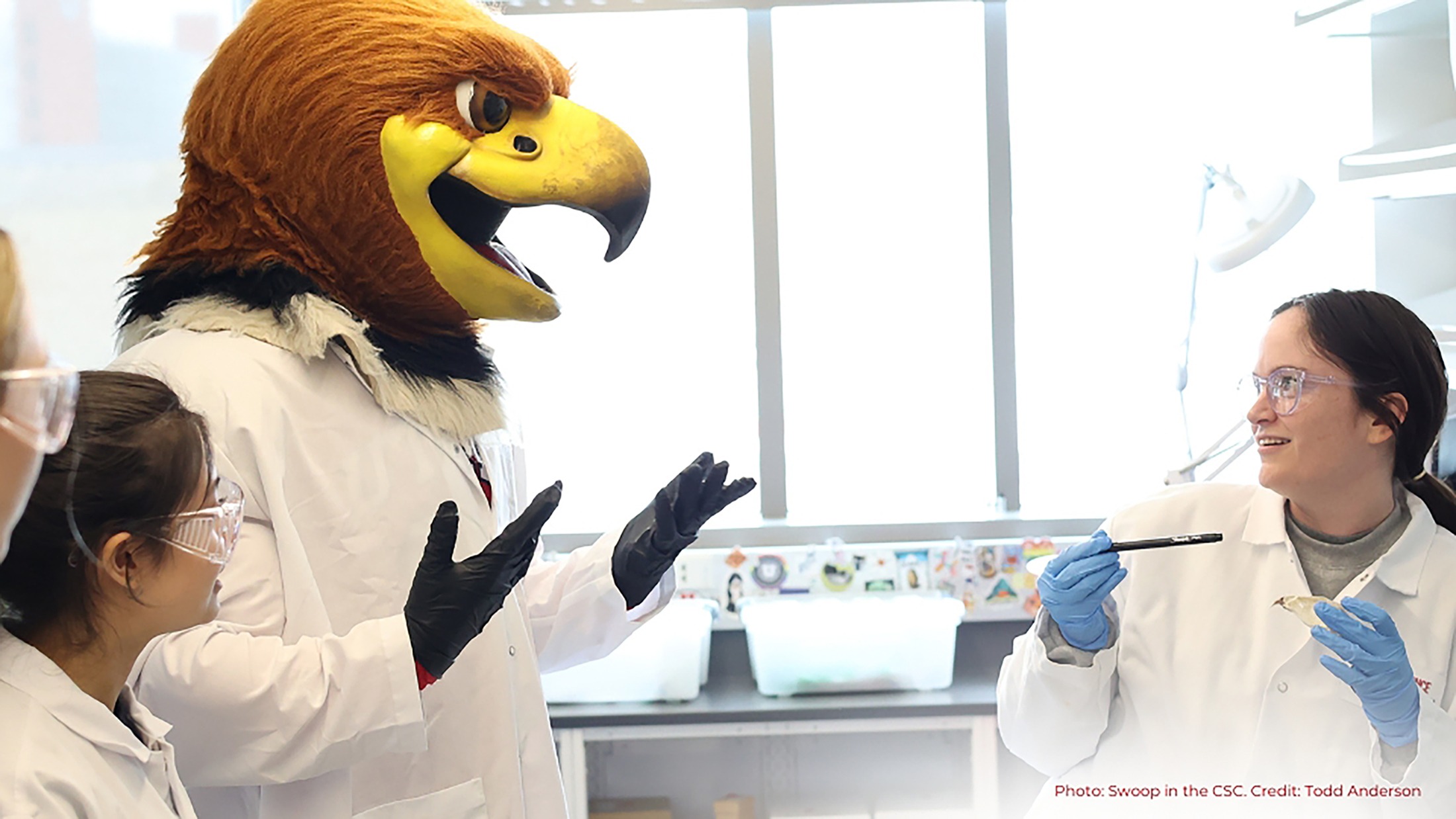
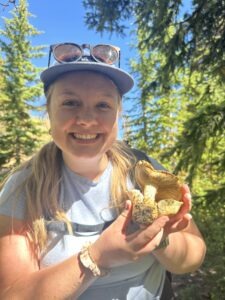
The average American spends about 90,000 hours working, so before you hit that treadmill remember: your undergraduate career is the perfect time to take risks and explore your options!
Whether you’re a freshman or an experienced biology student, getting involved in biology and finding your niche in science at the U can seem daunting.
In the spirit of the scientific method, we asked biology alums and current undergraduates to share their findings and methods for undergraduate success. Like scientific research, your path can be (and should be) informed by observations and questions, hypotheses and experiments, and by critically evaluating results to draw conclusions and inform next steps.
“You belong in biology! Imposter syndrome can be so real and sometimes things feel hard and it’s difficult to keep going. Just remember that you are such a valuable member of this field, and your perspectives are important to science! Biology has so many niches and exciting new discoveries that require people from a variety of different skill sets and passions. Keep going!” –Annabelle Rockne, biology senior
What resources would benefit you in your quest for academic excellence and in preparing for, and defining, your career path? Below are common concerns and questions students ask and resources that can help you find and develop a formula for success!
What classes should I take?
“I wish I had been brave and open-minded enough to explore all of the classes that interested me in my major even if they would have challenged me.”
–Scott Perkins, biology Alumni
Start by checking out the University of Utah Course Catalog and talking to Undergraduate Advising, then, ask your peers and consider other resources, like Rate My Professor.

Student-nominated course favorites:
BIOL 2020: Cell Biology with Jamie Gagnon and Naina Phadnis
BIOL 2325: Human Anatomy with Jon Groot
BIOL 3320: Comparative Physiology with Ayako Yamaguchi
BIOL 3410: Ecology and Evolution with Amanda Hoepfner
BIOL 5425: Mycology with Bryn Dentinger
BIOL 5960: Eukaryotic Genetics and Molecular Biology Lab with Erik Jorgensen
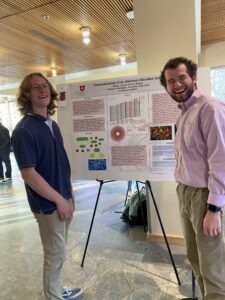
Should I get involved in research?
“I would recommend that you plan and partake in research no matter how small. The U has a lot of opportunities that not many people are aware of and these opportunities need to be explored. I got a work-study job at a research lab in the Department of Internal Medicine by applying for multiple postings on the U’s job site. Also, talk to your professors! They may have positions open in their labs.” –Favour Nnah, biology undergraduate
Research offers a unique opportunity to take a deeper dive into the biological sciences, finetune the courses and emphases you are considering, and even earn while learning. Finding your path into research is easier than it might seem.
Broadly, most students find a research lab using one of these two strategies:

- Talk to your peers, biology course instructors, and advisors. Learn about biological research projects happening in labs across campus from the School of Biological Sciences to the Huntsman Cancer Institute, to labs in Biochemistry, Neuroscience and more. With a little searching you can easily find faculty websites that offer insight into the research and community that defines that lab. Once youfind a facultymember whose research sparks your interest, send them an email and attach a copy of your college resume. For advice on drafting the email and creating a college resume, reach out to the College of Science Career Coaches.
- The College of Science Science Research Initiative is focused on facilitating the involvement of undergraduate students in research, and the Office of Undergraduate Research’s, OUR Research Opportunity Database is another great tool for helping students connect with research faculty who are actively looking for undergraduate support.
Study tips for success in science, from biology students.
Figuring out what study style works best for you can be a tricky process! Every student is different, but a little study advice from current and former students may help to point you in the right direction!
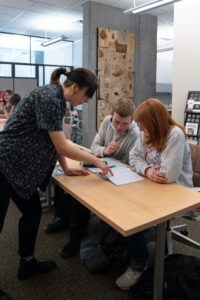
“Apply your knowledge outside of class. Are you taking anatomy? Think about what muscle groups you’re using as you walk to the union. Taking fundamental biology? Think about the symbioses of the animals around you. Cell biology or genetics? Conceptualize what is happening on at the micro scale as your cells are constantly synthesizing proteins from RNA.” –Nick Stout, undergraduate biology student
“Utilize office hours! Teaching Assistant (TA) and professor office hours can be so helpful, especially in difficult classes like organic chemistry and anatomy.” –Anonymous, biology student
“Do not tell yourself that you will just do the assignment later. You will not.” –Braden, biology student
“Find your study family! Having people to study with and consult can be the difference between a good grade and a great grade.” –Anonymous, biology senior
Resources for getting the most out of your biology undergraduate experience!
“Use the math center! I struggled a little bit through the calculus series and the only way I made it through was by going to my professor’s office hours as well as the math center. Having such an amazing resource is awesome, so use it!” –Annabelle Rockne, Senior
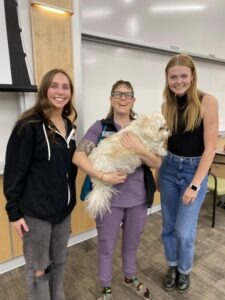
We polled current and former students to find out their favorite resources on campus and how they utilize them to succeed. Below are the most used and loved resources!
Instructor office hours can make the difference in succeeding in a difficult class, but can also help you secure a TA, lab position, or letter of recommendation. Find a time that works for you and go as often as possible. Your professors can offer academic and career insights and are a key part of your current and future network.
BiologyAdvising Office: For all questions about registration, degree requirements, course recommendations, campus engagement, networking, and more!
College of Science Career Coaches: These amazing career coaches can help you align your academic efforts with your professional goals. Meet with a coach early in your academic journey!
Preprofessional Advising: Are you interested in pursuing dentistry, medicine, law, or pharmacy? The preprofessional advising office can help you every step of the way of the way!
BioLuminaries hosts alumni and biologists to connect students with professionals and offer insights into the vast array of careers in biology.
Follow the School of Biological Sciences Instagram account (@uofubiology). The student focused account highlights the student experience, providing information about courses and instructors, events, scholarships, job opportunities, guest speakers, and more.
Beyond Biology: Getting involved and finding campus support
By taking your education in science beyond the classroom, you can add leadership, volunteer and work experiences that help you build skills that are directly or indirectly related to success in science.
Check out Campus Connect for a comprehensive list of organizations and clubs on campus. With almost 700 registered student organizations and club opportunities, everyone is bound to find a community they enjoy! The U’s Bennion Center is a central hub for volunteer opportunities and community engagement.
You can also find an on-campus job that aligns with your interests and career goals or that helps you to meet new people and finance your education. We recommend looking on the Campus Jobs Database, inquiring about internship and ambassadorships through the College of Science and/or School of Biological Sciences, talking to professors about TA, or considering a paid research position.
U Belong and the Office of Student Experience has a broad list of campus resources (academic, campus community, safety and wellness, and tuition and financial aid). Link here.

Not unlike the steps in the scientific method, your university education offers an opportunity to ask questions, try new things, refine study and communication skills, and, ultimately, prepare for your future.
“If there’s any advice I can give to students, it’s to try new, and probably scary, things because the next 40 years matter more than a couple extra classes or even a fifth-year undergraduate. As my Anatomy Professor, Dr. Miller, told me, you never know what might happen after you hold a human heart. Human anatomy is what solidified my choice to pursue a healthcare career.” — Anonymous, undergraduate
By: Isabel DuBay, Biology Major and Lead Communications Intern, School of Biological Sciences
You can email us at sbs-media@biology.utah.edu with questions, ideas, or to suggest a student story!
